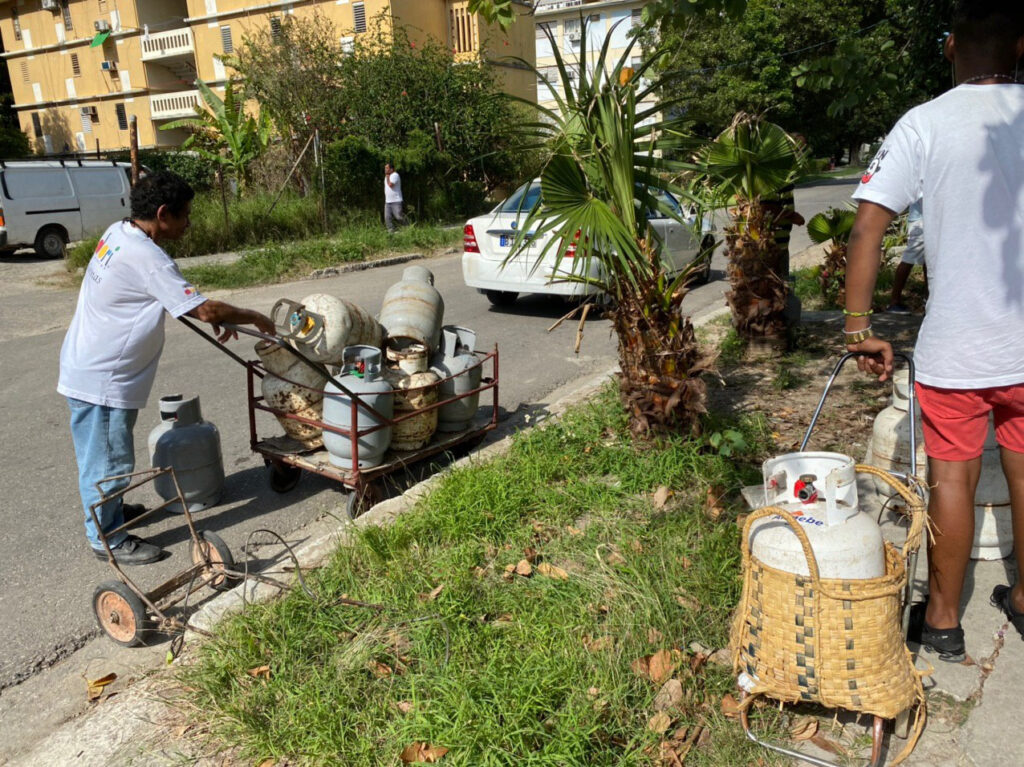Sonia explains how the ‘balita’ — gas canister — business works in Sancti Spíritus, Cuba

14ymedio, Mercedes García, Sancti Spíritus, 13 April 2024 — The first time the seller brought Sonia a balita (cooking gas cylinder) that wasn’t hers, so that she “could cook for a few days,” she was uncomfortable but accepted it. A resident of Sancti Spíritus, retired, with two grandchildren for whom she frequently prepares lunch, it took her a while to understand how the “business” worked: postponing the deadline for returning the deposit – and with a smile on his face – the courier used the empty cylinder to sell gas on his own. The business is more effective the more cylinders the courier has. If the cycle is kept alive, the cylinders go from hand to hand, and the dealer will be able to shorten the waiting times and attract less attention from his customers. If something fails, there are always “tricks,” Sonia explains, like telling a sob story so that the person doesn’t lose patience.
When this happens, even the most skillful of dealers must get their act together and knock on all the doors. They have to go to the point of sale, to state employees or to emergency reserves, such as the provisional balita that Sonia received. Time is, like in no other profession, gold.
“A neighbor explained to me what was happening, and I changed couriers,” says Sonia. “He started well.


